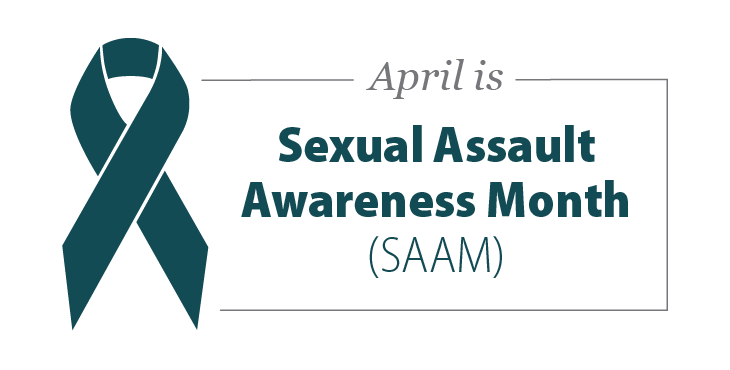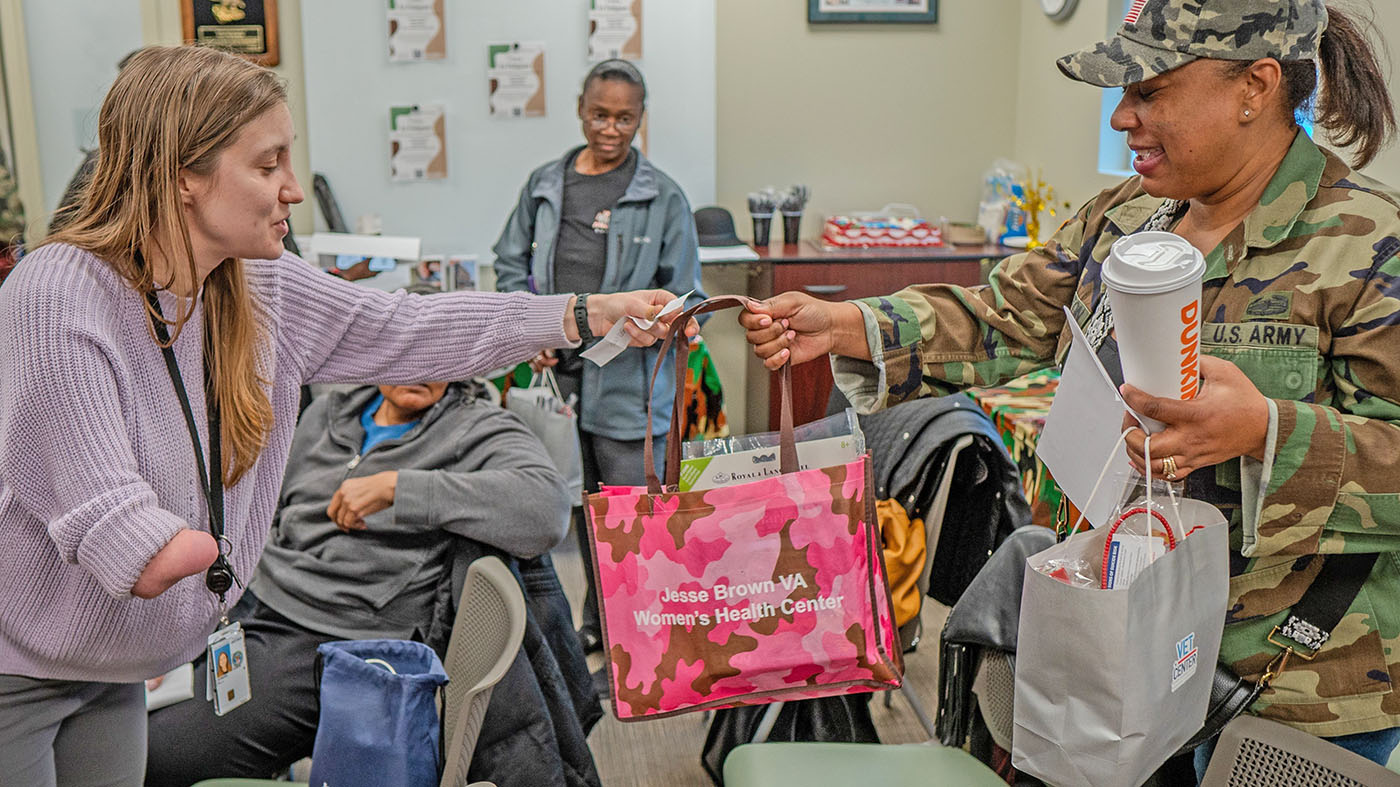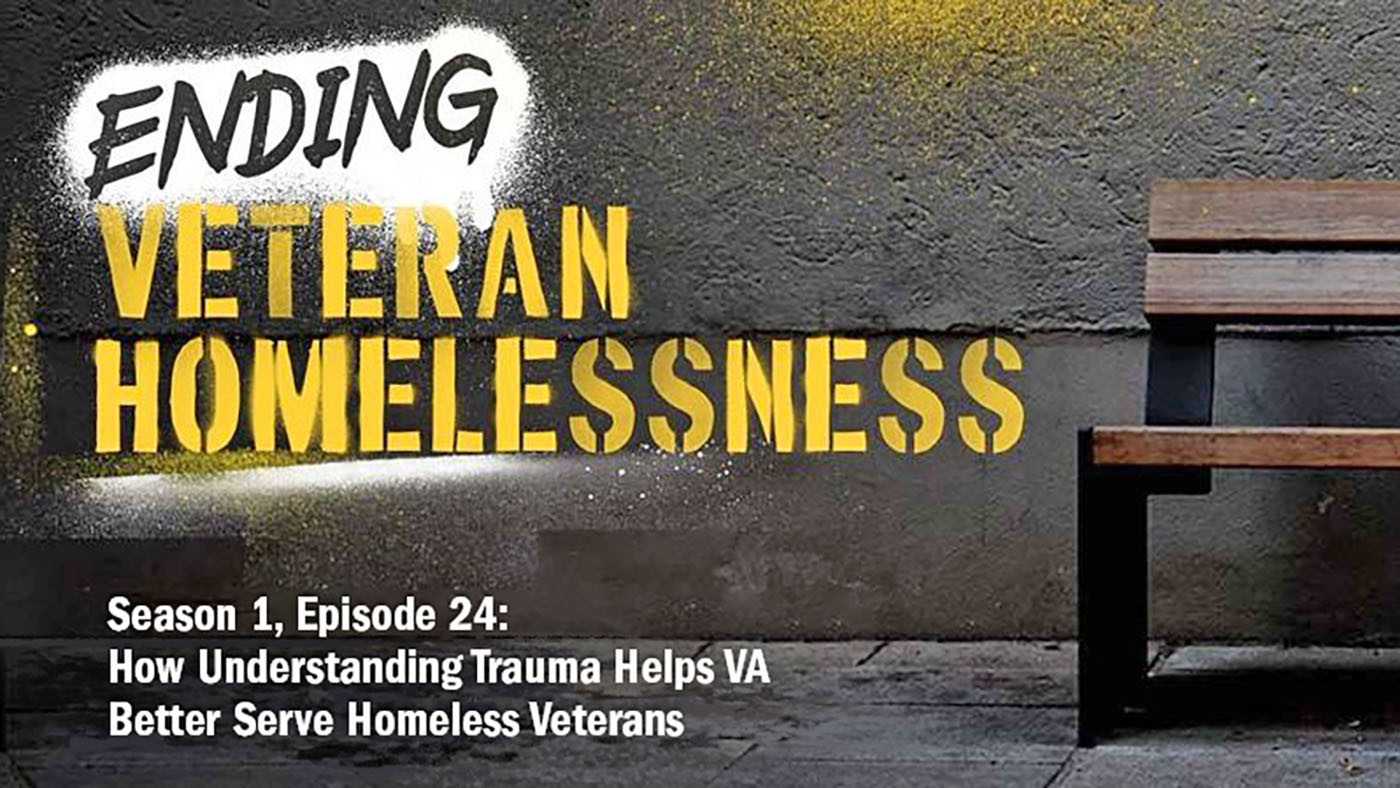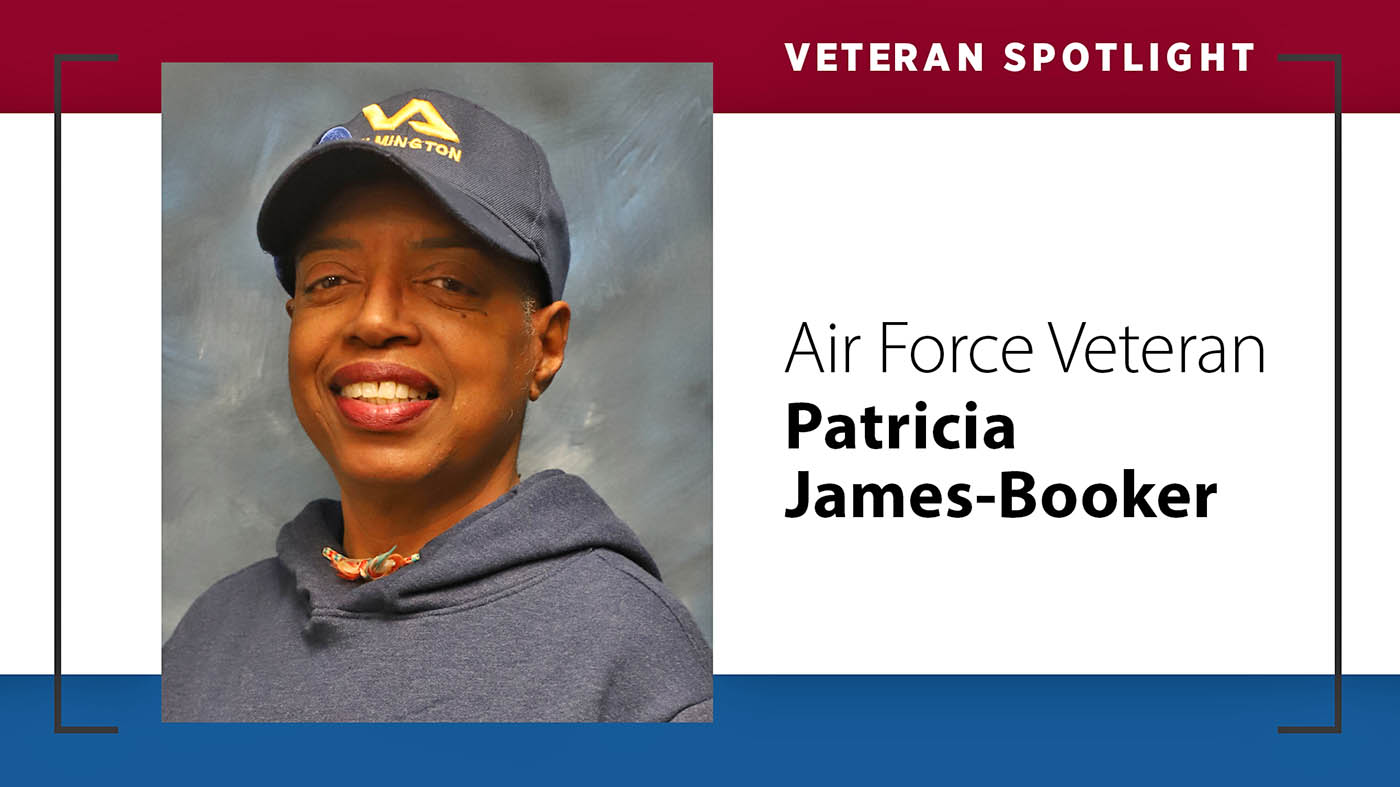During Sexual Assault Awareness Month, VA is emphasizing its ongoing work to ensure that Veterans and their partners who are experiencing or engaging in IPV are provided with the necessary resources and services, including VA’s Intimate Partner Violence Assistance Program (IPVAP) and other programs.
Women Veterans who report experiencing intimate partner violence (IPV) are three times more likely than other women Veterans to experience housing instability or homelessness. IPV is considered a public health epidemic and may include physical or sexual violence, stalking and psychological aggression by a current or former intimate partner. These episodes, which do not have to be sexual in nature to be considered IPV, may occur frequently or infrequently, and may take place over a period of years.
“The earlier we get involved, the more likely it is that we can help people identify potential risks in their relationship and help them stay safe,” said LeAnn Bruce, IPVAP national program manager. “We work with all Veterans and their partners to promote safety by providing skills to have a healthier relationship now or in the future.”
The IPV Assistance Program and screening tool
The IPV Assistance Program is one of numerous VA programs that can help Veterans and their families who have been impacted by physical, emotional or sexual violence. The program offers counseling, toolkits, fact sheets and tools for assessing relationships and health safety.
IPVAP also offers the Hurt, Insult, Threaten, Scream (HITS) screening tool that asks questions that elicits information about how often a person’s partner physically hurts, insults, threatens harms and screams at them. It takes just minutes to administer, and it can be used with all Veterans, regardless of gender, age, sexual orientation or presentation.
“This screening tool helps to educate while also identifying potential risk behaviors,” said Bruce. “The five questions illustrate that IPV is not just physical abuse, but can be verbal, emotional and sexual as well. It helps to identify potential opportunities to improve relationship skills or identifies risk for some form of IPV.”
When someone screens positive for IPV (endorsing one or more of the behaviors in the screen), it simply means they are experiencing relationship issues, not always that IPV is present. Although many Veterans do not acknowledge their experience with IPV, having a conversation with them after the screening and providing education and information about resources may allow Veterans to feel safe acknowledging their experience later on and to then seek help.
“VA understands and recognizes the unique stressors and experiences that Veterans and their families face, and the lasting negative impact that IPV can have on overall health and well-being,” said Bruce. “IPVAP values and promotes safe, healthy relationships while standing ready to assist with safety planning and intervention.”
Other VA programs that can assist with IPV
Veterans who lose their housing when fleeing intimate partner violence are eligible for several programs offered through VA’s Homeless Programs Office: Supportive Services for Veteran Families, Housing and Urban Development-VA Supportive Housing, Grant and Per Diem, and Health Care for Homeless Veterans Contract Residential Services.
If you or someone you know is impacted by IPV, check out the resources below for help enhancing the safety and emotional and physical well-being of those affected.
More information
- If you are experiencing IPV, call the National Domestic Violence Hotline at 1-800-799-7233 or 1-800-787-3224.
- To learn more about VA’s IPV Assistance Program, visit its website.
- For more information or to receive assistance, contact your local Intimate Partner Violence Assistance Program.
- To access the HITS screening tool, visit HITStool.com (VA has a contract to use the copyrighted tool).
- Veterans who are homeless or at risk of homelessness should contact the National Call Center for Homeless Veterans at 877-4AID-VET (877-424-3838).
Holly Hirsel is a National Call Center for Homeless Veterans liaison and national program coordinator for the VHA Homeless Programs Office, and currently serves as a social worker and a behavioral health officer (O4) with the United States Army Reserve.
Topics in this story
More Stories
Chicago Vet Center and VA gave women Veterans information on VA services available to them.
A unique program at Boston VA uses the principles of trauma-informed care to serve homeless Veterans with empathy and understanding.
An Air Force Veteran and volunteer faced homelessness but found housing with help from VA.







It’s not just women who suffer. Men are victims to. I had to see it to believe it. My husband & I were both in the USMC. He beat me every chance he got. Even in front of his buddies in his company. He would disappear on Fri and come back Sunday. He beat me the whole time I was preg with his fists, guitar, enything. He took it out on me he was bisexual, alcoholic & used drugs. He tried to give me to his buddies. I told him his best friend attacked and raped me twice before I shipped out to Okinawa. He didn’t care. I was never supposed to be able to get pregnant but he raped me so bad I bled for a month and got preg. I lived for 39 yrs thinking my son was a rape baby. Turns out he wasn’t. I was attacked several more times by our marriage counselor, my 1st Sgt, prenatal Dr., etc. I tried to tell but nobody cared it was the early 1980’s. I was a mechanic/truck driver & heavy veh operator. It was my dream job at age 19. I was great at it. I threw myself into my job to keep from killing myself. My husband at the time was so jealous of me and my job. I was the only female in that MOS. I only wanted to do my job not cheat. The guys in my Company respected me for that. My husband beat me so much I started limping and bruises showed. My C.O. threatened my husband who was not in our company. I was told if I told about the other assaults it would be worse so I kept my mouth shut. I took the beatings, attacks, etc. I just wanted to do my tour and go back stateside with my baby and go into hiding and get a divorce. I finally did but I was broken and after 41 yrs I’m still broken. My best friend who I married committed suicide in Oct 2011 after 26 yrs said he couldn’t watch me fight my demons anymore. He did it the same weekend I had planned on dying. I’m glad I didn’t do it. I now have 4 grandkids & a man who truly loves me & will not give up on me. I’m taking classes on PTSD/MST trying to be as normal as possible. It’s so hard but I’m trying. Semper Fi